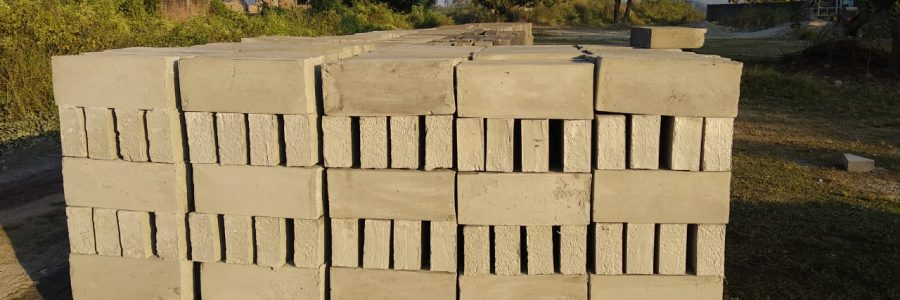Three young engineering graduates from Guwahati, David Gogoi, Rupam Choudhury, and Mousam Talukdar, are creating ripples in the construction market in Assam with their innovative and low-cost brick manufacturing startup. Unlike the usual red clay bricks, Zerund bricks are made of cement, fly ash, organic chemicals, and plastic waste and are available at prices 15-20% lower than that of the regular bricks available in the market.
“Our main cost of production is cement. 60-70% of the raw-materials are waste products alone. The NTPC is offering us fly ash for free as a gesture to support our innovation,” says David Gogoi, one of the founders of Zerund Bricks.
They have designed a 3-process machine that shreds waste plastics into microbeads which are used in the brick making mixture. Use of plastic augments the tensile strength of the bricks and also shores up resistance to water absorption, thereby dismantling any possibility of dampness in the constructions.
Tiny honeycombs are shaped inside these lightweight plastic embedded bricks that act as air bubble insulation sheets against extreme heat and cold penetration.
Incorporated in September 2018, Zerund has been certified by the National Test House, the Public Works Department, and the Assam Engineering College. In fact, the founders had started working on the prototype in college as their 7th-semester project.
At present, Zerund is operating from a single manufacturing plant at Azara, Guwahati. Interestingly, it was a fully equipped plant at the time they took it on lease.
“We didn’t have to incur an extra expense to set up the plant. We only needed people to man the machines, which cost us lesser than a lakh. The operations costs were sourced from the operations itself,” David says.
Encouraged by the cost-efficiency of working on an existing plant, the startup has decided to follow the same model of integrating and accelerating working plants in the future as well. They are currently in talks with a few parties across the state over plant procurement.
As David elucidates, “The parties will get a chunk of the profit from the plant. But we will have complete control over sales and operations. That way we will be able to protect our technology as well.”
David believes that their startup is blessed by a divine intervention which has been able to steamroll the rough patches in their journey. At a time when they were showed the door at financial institutions during their embryonic days, a couple of senior alumni (businessmen) from the Assam Engineering College showed up with a keen interest in their startup and agreed to invest.
Within a span of seven months from the day of inception, Zerund has sold bricks worth Rs. 32 lakhs. Currently, the demand for their bricks exceeds production. As David says, “For the next two years, we shall have no sales crunch.”
Although the startup primarily has a B2B model, the founders aren’t giving up on B2C either on ground that the latter assures a better cash flow.
With clients spread across the states of Northeast India, the Zerund founders’ goal is to grow into India’s largest brick manufacturer in the next 10 years.
Asked about the current constraints in the business, David is quick to state that the constraints are opportunities to flourish. However, being in a capital intensive industry, they would need formidable funds to expand. David reveals about their aim to acquire 10 more plants over the next 3-4 quarters, which would require funds of around Rs. 15 crores.
An incubatee at Assam Startup – The Nest, Zerund hopes to gain in terms of deeper business acumen and productive connections from the state-owned startup incubation initiative of Assam.
It seems that the startup founders have learnt the ropes well when they say that they are here to focus on business and earn money instead of devoting time in becoming social media heroes. To summarise in David’s words, “We don’t need thousands of people to know about our business. We don’t aspire to be social media heroes either. We only need a few good and resourceful people who are genuinely interested in our products and can contribute to the growth of our business.”
By: Satarupa Mishra












